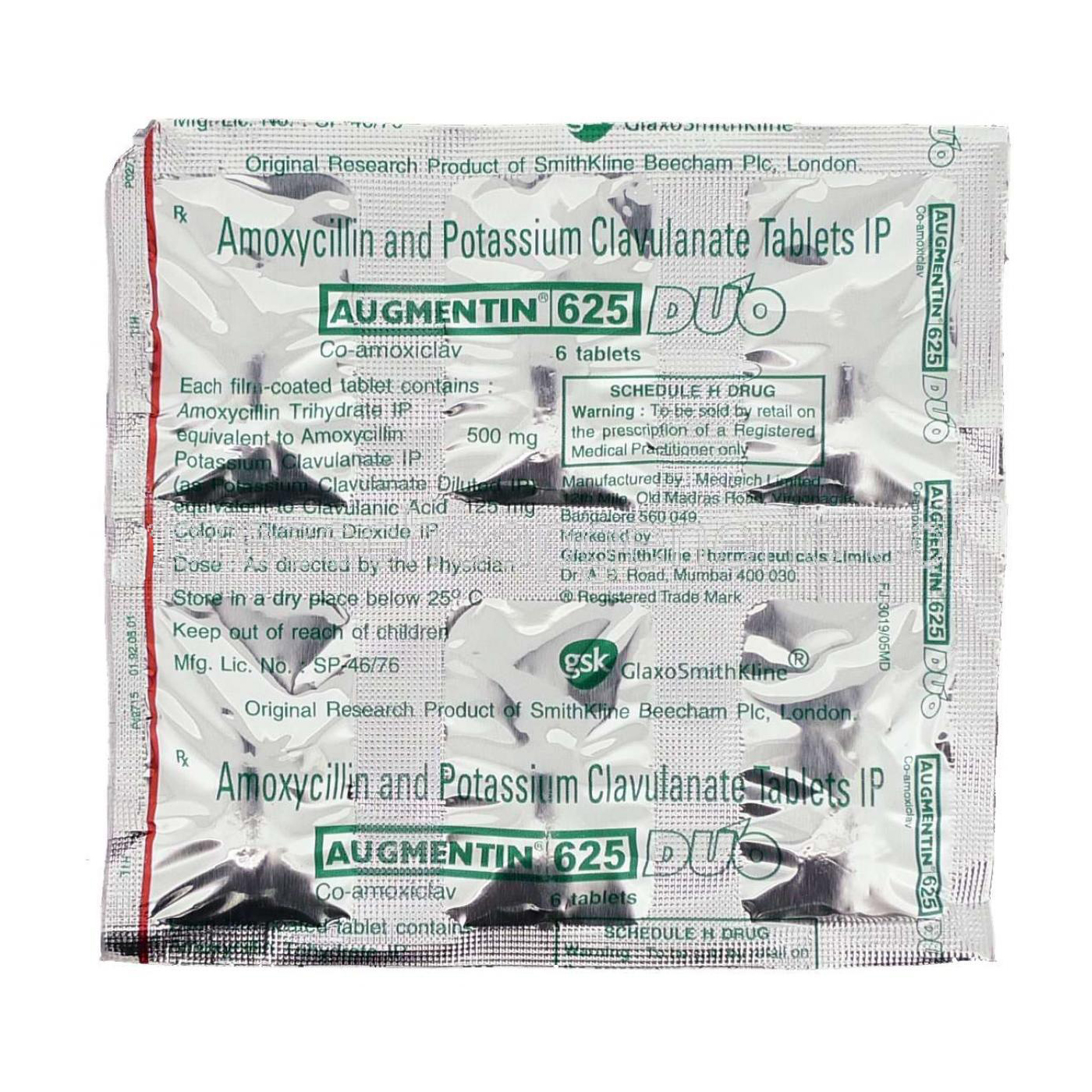description
CONTENT: Megamentinc 625, 625mg (6 capsules)
What is Augmentin?
Augmentin is a penicillin antibiotic.
Augmentin contains a combination of amoxicillin and clavulanate potassium. Amoxicillin is an antibiotic in a group of drugs called penicillins. Amoxicillin fights bacteria in the body.
Clavulanate potassium is a form of clavulanic acid that is similar to penicillin. Clavulanate potassium fights bacteria that is often resistant to penicillins and other antibiotics.
Augmentin is used to treat many different infections caused by bacteria, such as sinusitis, pneumonia, ear infections, bronchitis, urinary tract infections, and skin infections.
Augmentin can also be used for purposes not listed in this medication guide.
Important information
Do not use Augmentin if you are allergic to amoxicillin or clavulanate potassium, or if you have ever had liver problems from these drugs. Do not use if you are allergic to other penicillin antibiotics, such as amoxicillin (Amoxil, Augmentin, Dispermox, Moxatag), ampicillin (Principen, Unasyn), dicloxacillin (Dycill, Dynapen), oxacillin (Bactocill) or penicillin (Bicillin LA, PC Pen VK, Pfizerpen) and others.
Before taking Augmentin, tell your doctor if you have liver disease (or a history of hepatitis or jaundice), kidney disease, or mononucleosis, or if you are allergic to a cephalosporin antibiotic such as cefdinir (Omnicef), ceficilium (Cefzil), cefuroxime ( Ceftin), Cephalexin (Keflex) and others.
When switching from one tablet form to another (regular, chewable, or elongated tablet), only take the new tablet form and strength that is prescribed for you. This medication may not be as effective or harmful if you don't use the exact tablet your doctor prescribed.
Amoxicillin and clavulanate potassium can pass into breast milk and can harm a nursing baby. Do not use this medication if you are breastfeeding a baby without telling your doctor. Augmentin can make birth control pills less effective. Ask your doctor about using a non-hormone method of birth control (such as a condom, diaphragm, spermicide) to prevent pregnancy while taking Augmentin.
Before taking this medicine
Do not use Augmentin if you are allergic to amoxicillin or clavulanate potassium, or if you have ever had liver problems from these drugs. Do not use if you are allergic to other penicillin antibiotics, such as amoxicillin (Amoxil, Augmentin, Dispermox, Moxatag), ampicillin (Principen, Unasyn), dicloxacillin (Dycill, Dynapen), oxacillin (Bactocill) or penicillin (Bicillin LA, PC Pen VK, Pfizerpen)) and others.
To make sure you can safely take this medicine, tell your doctor if you have any of these other conditions:
- Liver disease (or a history of hepatitis or jaundice);
- Kidney disease;
- Mononucleosis; or
- If you are allergic to a cephalosporin antibiotic such as cefdinir (Omnicef), cefsprozil (Cefzil), cefuroxime (Ceftin), cephalexin (Keflex), and others.
FDA pregnancy category B. Augmentin is not expected to be harmful to an unborn baby. Let your doctor know if you are pregnant or plan to become pregnant during treatment. Augmentin can make birth control pills less effective. Ask your doctor about using a non-hormone method of birth control (such as a condom, diaphragm, spermicide) to prevent pregnancy while taking Augmentin. Amoxicillin and clavulanate potassium can pass into breast milk and can harm a nursing baby. Do not use Augmentin if you are breastfeeding a baby without telling your doctor.





